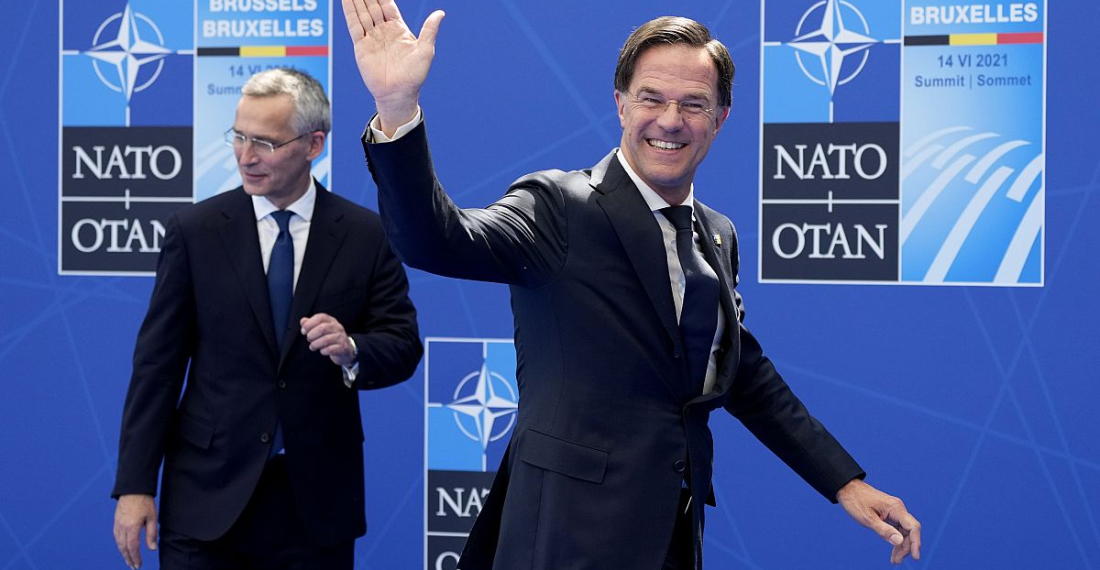The 32 NATO countries have officially elected outgoing Dutch Prime Minister Mark Rutte as the next Secretary General of the transatlantic military alliance. NATO made the announcement on Wednesday (26 June). Rutte will take over when current NATO chief Jens Stoltenberg completes his final term on 1 October 2024.
The appointment of Rutte is not unexpected and is only a formality: his last remaining rival for the post, Romanian President Klaus Iohannis, announced last week that he was withdrawing from the race. Moreover, all NATO countries had previously expressed their support for Rutte, and he was the favourite candidate of NATO's main partner, the United States, from the outset.
Stoltenberg, who will have served as NATO secretary general for 10 years when he steps down, called his successor Rutte a "true transatlanticist, a strong leader and a bridge builder" on social media. A NATO chief serves a four-year term, but Stoltenberg's was extended several times at the request of allies. This was due to tensions with Russia and the lack of a successor with his experience.







